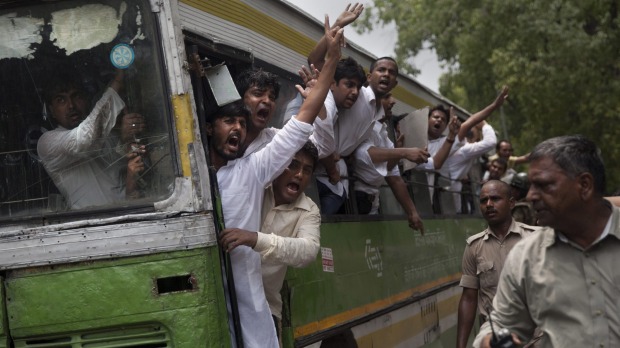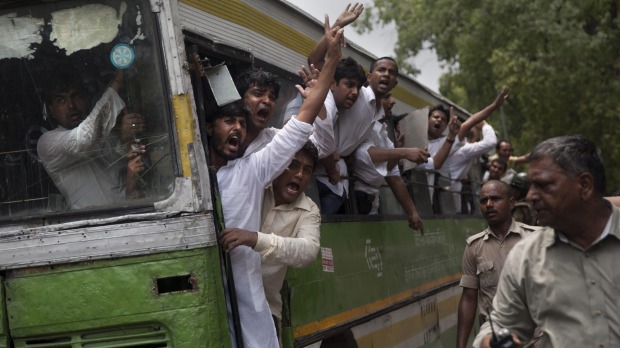
A crime in an Agatha Christie story is simplicity itself compared with what is being billed as India’s bloodiest and most audacious scandal. With every passing day, the medical-school admissions racket becomes murkier.
Corruption scams are a normal feature of Indian life, as predictable and frequent as a sunny day. But never in the 68 years since independence has a scam involved an estimated 40 or so mysterious deaths of men and women. These are individuals who, had they lived, would have been witnesses, testifying in court to the wrongdoings of a multitude of civil servants and local politicians.
The scandal is called Vyapam, the Hindi acronym for a government department in the central state of Madhya Pradesh that conducts examinations for medical college admissions and jobs.
The available evidence indicates that the entire process was flagrantly rigged to a degree that is shocking even by India’s standards of routine cheating. Candidates hired impersonators – better students than themselves – to sit exams; the answer sheets were meticulously rigged to give higher marks to candidates who had paid bribes ranging from $16,000 to $90,000; and question papers were leaked and sold to students.
“This went on for years. It began in 2007. We estimate that since then, some 150,000 men and women have sat exams that were rigged. Just imagine the number of people who have illegally qualified as doctors? It is frightening,” said a local anti-corruption campaigner Kishore Rathore.
The first complaints began in 2009, forcing the state government to start an investigation. But it only became local news in 2013 when local police started arresting people. Since then, more than 2500 people have been accused of cheating, around 2000 have been arrested, and hundreds more are on the run.
A day after his death, a college dean, Arun Sharma, who was helping with the investigation, was found dead at his Delhi hotel room.
Political analyst Neerja Chowdhury commented: “Big-time money scams we have seen. But a killer scam? That is a new low for our polity.”
The question is how the 40-odd deaths are linked. No one has yet been able to establish a causal connection. It will take a thorough investigation to do that. But cavalier attitudes of local politicians to so many deaths has infuriated Indians. Madhya Pradesh Home Minister Babulal Gaur said: “Death is a natural occurrence. One who has been born will die.”
India’s culture of cheating is well-entrenched, caused partly by the mismatch between demand and supply. Parents spend their life savings on a child’s education and then when it comes to exams, are not prepared to tolerate the risk of failure.
Just last month, the Supreme Court ruled a re-test of a medical school exam that had been sat by more than half a million students. The question paper had been leaked.
In March, India earned global ridicule when a photograph showed relatives of students scaling the balconies and windows of the building to help the students inside cheat.
Cheating has become high-tech with online suppliers selling tiny microphones and other listening and speaking gadgets that are sewn into the seams of vests.
Daily life in Madhya Pradesh has acquired a new complication since the scandal broke.
Local journalist Avirook Chouhan said that going to a doctor was now like playing Russian roulette.
“My family have said they will think twice about seeing a doctor. They’re wondering if he cheated his way into medical school and whether he should actually be in jail rather than a clinic.”
Source: SMH.com.au

